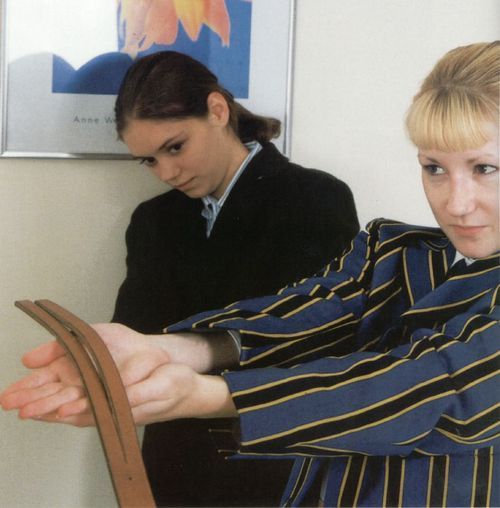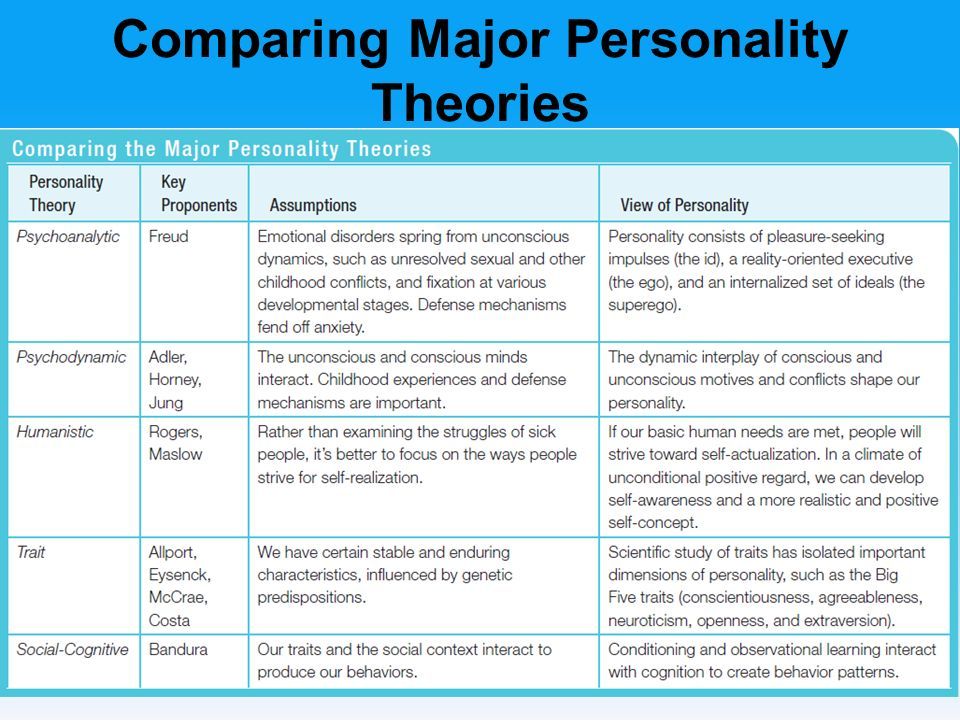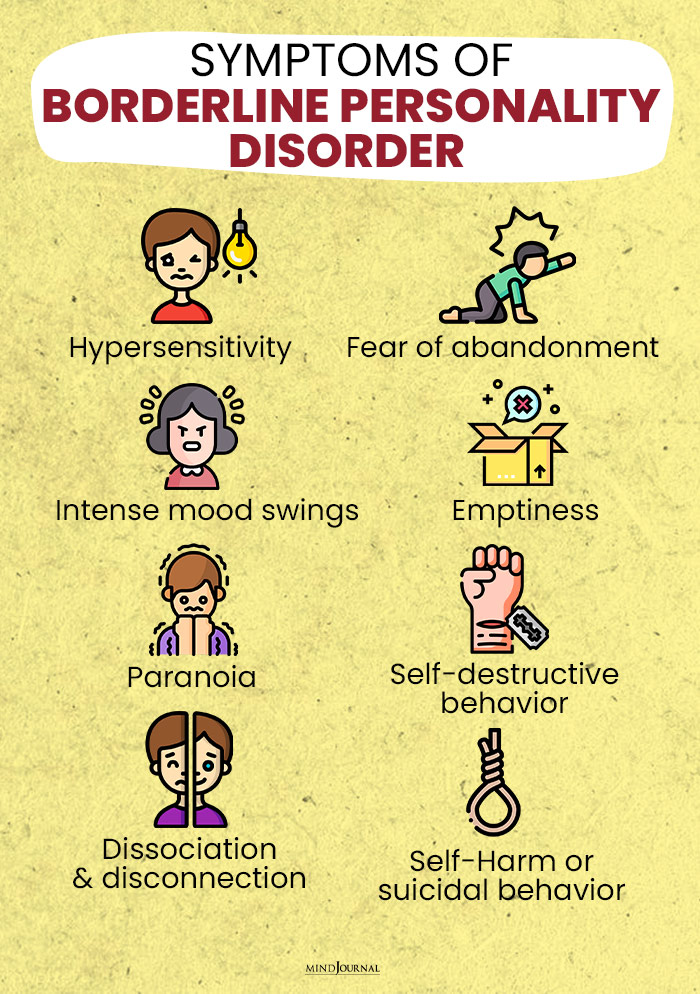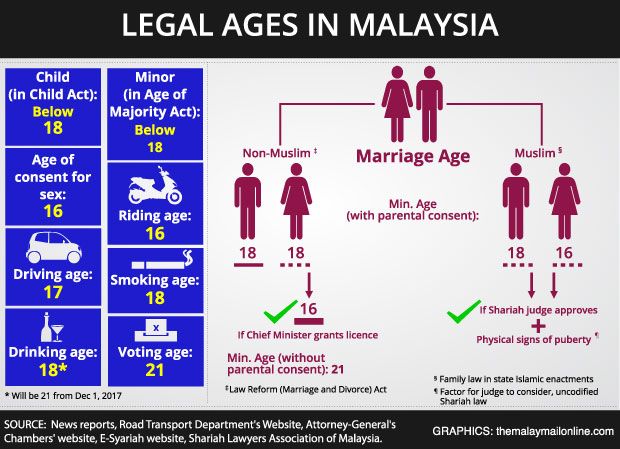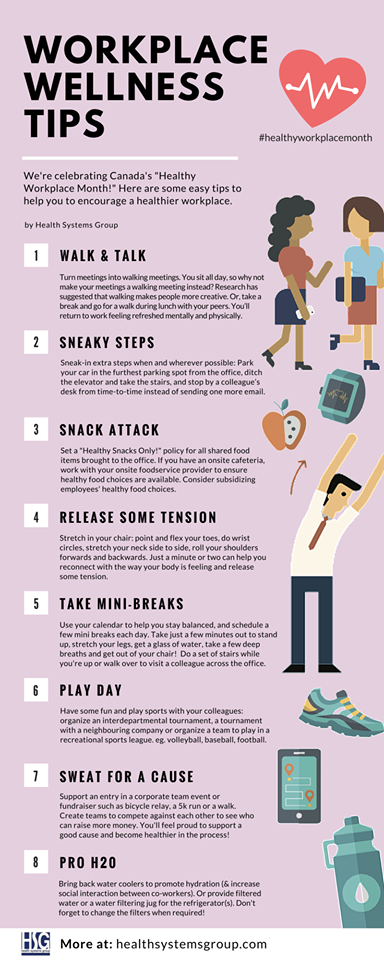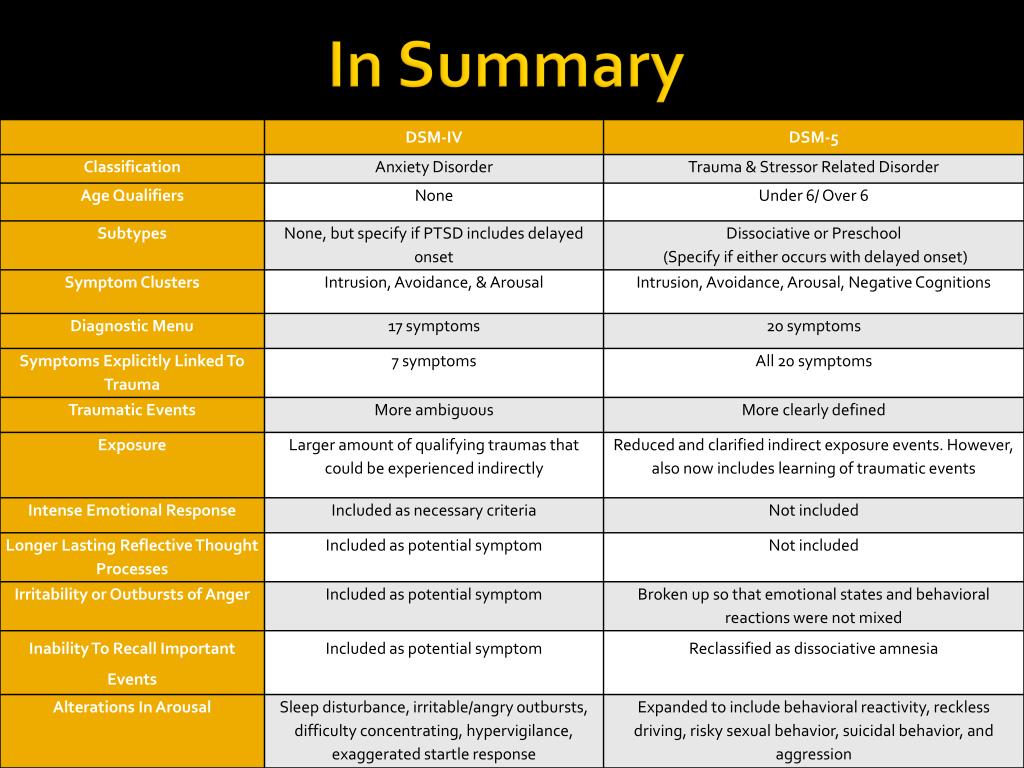I punish teen
How to Discipline a Teenager Who Doesn't Care About Consequences
Many parents discipline their teens by taking away their cell phone privileges, video games, or screen time, or giving them extra chores. Despite having once worked, these strategies often don’t work after a while. So how to discipline a teenager who doesn’t care about consequences?
Consequences and Behaviorism
Using consequences to discipline is an example of behavioral management, which is based on behaviorism1. It is a type of discipline strategy commonly prescribed by teachers or behaviorists.
The type of consequences employed by parents is usually negative although both positive and negative consequences can be used.
Behaviorism is a theory or doctrine that explains how the environment influences an animal’s or person’s behavior. It asserts that people and animals are not free to act as they please, but instead are controlled by external forces.
Behaviorists believe that behavior can be changed as the environment changes through a process called operant conditioning. Using operant conditioning, a person can form an association between the environment and the behavior. One learns how to behave in a given environment through associative learning.
In this view, it is the environment that determines a child’s behavior. Negative behaviors are the result of bad training. If we apply the right consequences, we will get appropriate behaviors.
The decline of Behaviorism
Behaviorism gained popularity in the 1960s. It was the first time psychology was considered a science because one could repeat the results reliably with the same inputs.
The power of conditioned learning was demonstrated through numerous experiments using animals such as pigeons or rats2.
What’s the problem?
The problem is people are not lab rats.
Humans are a lot more sophisticated than lab animals. To assume that everything a person does could be explained or influenced by the environment is incorrect, and that has been clearly proven in studies3–5.
While behaviorism declines in its use and influence within psychology, this shift hasn’t spread among parents. A lot of parents are still using consequences to discipline their children because it really seems to work… but only the first few times they use it.
Why is behavior management still used in classrooms
Then why do teachers still learn behavior management in their training if behaviorism is so bad6?
It is common for teachers to use behavior management in the classroom since it is an effective way to control a group’s behavior. In the short term, behavioral management techniques can often affect a crowd’s behavior reliably.
This is why when most parents first start using consequences, they see positive results. But the short-term results usually don’t last.
Because a child is not a pigeon.
A child’s brain has a mind and a mental process, which behaviorists conveniently disregard when promoting behaviorism.
Why are punitive consequences especially harmful for teenagers
Fighting constantly is bad for anyone’s mental health, but it’s particularly harmful to teenagers since their brains are more vulnerable during adolescence.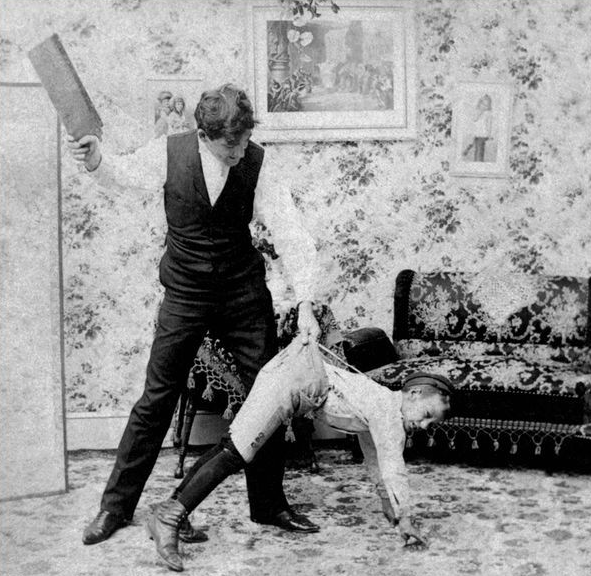
Conflicts between parents and children are linked to adolescents’ aggression7, anger management issues, anxiety, and depression8.
Adolescents who engage in high levels of conflicts with their parents also tend to display mood, emotional, and behavior problems9.
Conflicts over mundane domestic issues are one of the best predictors of adolescent maladjustment10. They are also linked to several psychiatric disorders, such as conduct disorder, and oppositional defiant disorder11.
How to discipline a teenager who doesn’t care about consequences
Don’t use consequences to discipline
Stop treating your child as a lab animal! They have feelings and thoughts like all people.
Imagine, if someone punishes you on a daily basis to bend you to their will, do you think you will gladly accept and comply all the time?
You may, at the beginning. But at some point, you probably will start fighting back. You may argue over the rules or punishment. You may also get angry when that doesn’t work. That’s normal. You are seeking justice and protection for yourself. Temper tantrums appear because you are frustrated.
You may argue over the rules or punishment. You may also get angry when that doesn’t work. That’s normal. You are seeking justice and protection for yourself. Temper tantrums appear because you are frustrated.
But when our children have arguments with us and get upset, we call them “a defiant teenager.”
So, when we are punishing teens and not allowing them to fight back, we are not only treating our kids as lab animals but also as second-class citizens who have no right to speak up or defend themselves.
Teach them how to think
Discipline means to teach, not to punish.
The purpose of discipline is not to make kids suffer, but to teach them positive behavior.
A better way to discipline is to teach them how to think critically.
Critical thinking skills are crucial to the development of teenagers.
Parents have been telling their children what to do ever since they were babies. The habit is ingrained in us.
But teenagers are no longer babies. These young adults are developing their independence. We cannot just tell them what to do. We must also explain why they should do it.
These young adults are developing their independence. We cannot just tell them what to do. We must also explain why they should do it.
This is how teenagers learn to make good decisions.
Teenagers don’t suddenly develop sound judgment the moment they turn 18. It is a skill that takes time and practice to develop.
When you set appropriate limits, give them reasons. Explain the pros and cons of every decision, so that they have a process to follow when they need to make their own decisions.
When appropriate, use natural consequences
Natural consequences are the most effective consequences when the issue is not health or safety-related.
Parents often fret about their teens’ unfinished school work or failing grades, but they don’t realize that they cannot hold their teens’ hands forever. Unless you plan to punish or bribe your teen through college, which will most likely not work once they turn 18, let them fail now. It’s better to fail now than to wait until they turn 18.
You cannot care for a teen their entire life if they don’t care about their own future. They need to face the logical consequences of their actions sooner rather than later.
Focus on issues, not personal blames
Parents tend to have more frequent and more intense conflicts when they believe their teenager’s bad behavior is a result of their personality12. They are upset because they think that their children are misbehaving with malicious intentions to hurt them. Frustrated parents tend to have distorted beliefs such as perfectionism, obedience, and ruination more than non-distressed parents.
So when there are conflicts or incidents that require discipline, focus on the issue, not personal attributions that will do nothing but make everyone angrier.
Repair your relationship
If you have been using punishments for teenagers to the point that your child no longer cares, then it is very likely that your relationship has been damaged.
A strained relationship cannot help your teen behave. Listening and learning are more likely to happen when your child feels connected to you. Start now if you want to save this relationship.
Listening and learning are more likely to happen when your child feels connected to you. Start now if you want to save this relationship.
The key to strengthening a relationship is not just spending more time together.
Quality time matters more.
Relationships between parents and children are special, but they’re not that different from those between friends, neighbors, coworkers, or spouses.
Kids are people too.
To build a good relationship, You need to care about them, treat them with kindness and respect, help when they need it, and give them support when they’re discouraged.
The same applies to building any kind of relationship.
The only difference between a parent-child relationship and one with an adult is that we must also protect them.
One of the best ways to teach teens appropriate behavior is to re-establish a close relationship and connection with them.
Studies find that adolescents who have a supportive relationship with parents are less likely to engage in delinquent behavior due to peer pressure13.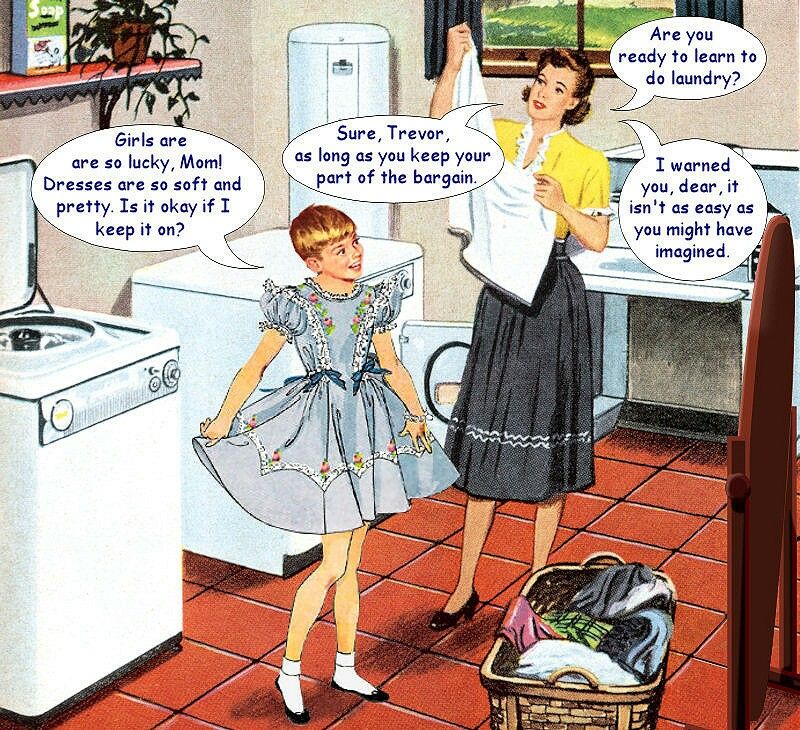
A positive relationship and a pleasant family life can go a long way in teaching teens good behavior.
Teach them how to disagree respectfully
Some parents believe that any disagreement from their children is backtalk. However, disagreeing with someone is not the same as talking back. It is possible to disagree with someone respectfully, a crucial skill that many children don’t learn at home.
If you want your child to become a leader, not just someone who follows orders from others, you must give them the confidence and skills to discuss disagreement respectfully.
So the next time you want to discipline your teen, take some deep breaths. Avoid power struggle in the heat of the moment. Teach them calmly how to disagree respectfully. Focus on the issue, not personal attributes. Teach them a process to critically think through the problem to make better choices. Most importantly, let them practice making decisions and doing the right thing.
Motivate your teenager intrinsically
If the discipline issue involves a lack of motivation, motivate them intrinsically to inspire behavior change.
Intrinsic motivation means your teen will want to do an activity because they enjoy it, not because they will be rewarded or punished.
Also See: Parenting Teens
Need Help Motivating Kids?
If you are looking for additional tips and an actual step-by-step plan to motivate your teenager, this online course How To Motivate Kids is a great place to start.
It gives you the steps you need to identify motivation issues in your child and the strategy to help your child build self-motivation and become passionate about learning.
Once you learn this science-based strategy, motivating your child becomes easy and stress-free.
References
-
1.
Watson JB, Kimble GA. Behaviorism. Routledge; 2017. doi:10.4324/9781351314329
-
2.
Pineño O. ArduiPod Box: A low-cost and open-source Skinner box using an iPod Touch and an Arduino microcontroller.
 Behav Res. Published online June 28, 2013:196-205. doi:10.3758/s13428-013-0367-5
Behav Res. Published online June 28, 2013:196-205. doi:10.3758/s13428-013-0367-5 -
3.
Mahoney MJ. Scientific psychology and radical behaviorism: Important distinctions based in scientism and objectivism. The restoration of dialogue: Readings in the philosophy of clinical psychology. Published online 1992:115-124. doi:10.1037/10112-014
-
4.
Mandler G. Origins of the cognitive (r)evolution. J Hist Behav Sci. Published online 2002:339-353. doi:10.1002/jhbs.10066
-
5.
Moore J. Behaviorism. Psychol Rec. Published online July 2011:449-463. doi:10.1007/bf03395771
-
6.
Kellam SG, Brown CH, Poduska JM, et al. Effects of a universal classroom behavior management program in first and second grades on young adult behavioral, psychiatric, and social outcomes. Drug and Alcohol Dependence. Published online June 2008:S5-S28. doi:10.1016/j.drugalcdep.2008.01.004
-
7.

Branje SJT, van Doorn M, van der Valk I, Meeus W. Parent–adolescent conflicts, conflict resolution types, and adolescent adjustment. Journal of Applied Developmental Psychology. Published online March 2009:195-204. doi:10.1016/j.appdev.2008.12.004
-
8.
Forehand R, Brody G, Slotkin J, Fauber R, McCombs A, Long N. Young adolescent and maternal depression: Assessment, interrelations, and family predictors. Journal of Consulting and Clinical Psychology. Published online 1988:422-426. doi:10.1037/0022-006x.56.3.422
-
9.
Slater EJ, Haber JD. Adolescent adjustment following divorce as a function of familial conflict. Journal of Consulting and Clinical Psychology. Published online 1984:920-921. doi:10.1037/0022-006x.52.5.920
-
10.
Barber JG, Delfabbro P. Child and Adolescent Social Work Journal. Published online 2000:275-288. doi:10.1023/a:1007546023135
-
11.
Marmorstein NR, Iacono WG.
 Major depression and conduct disorder in youth: associations with parental psychopathology and parent-child conflict. J Child Psychol & Psychiat. Published online February 2004:377-386. doi:10.1111/j.1469-7610.2004.00228.x
Major depression and conduct disorder in youth: associations with parental psychopathology and parent-child conflict. J Child Psychol & Psychiat. Published online February 2004:377-386. doi:10.1111/j.1469-7610.2004.00228.x -
12.
Grace NC, Kelley ML, McCain AP. Attribution processes in mother-adolescent conflict. J Abnorm Child Psychol. Published online April 1993:199-211. doi:10.1007/bf00911316
-
13.
de Kemp RAT, Scholte RHJ, Overbeek G, Engels RCME. Early Adolescent Delinquency. Criminal Justice and Behavior. Published online August 2006:488-510. doi:10.1177/0093854806286208
About Pamela Li
Pamela Li is a bestselling author. She is the Founder and Editor-in-Chief of Parenting For Brain. Her educational background is in Electrical Engineering (MS, Stanford University) and Business Management (MBA, Harvard University). Learn more
View all posts by Pamela Li | Website
Discipline strategies for teenagers | Raising Children Network
Discipline: pre-teens and teenagers
Discipline isn’t about punishment. It’s about guiding children towards appropriate ways to behave. For pre-teens and teenagers, discipline is about agreeing on and setting appropriate limits and helping them behave within those limits.
It’s about guiding children towards appropriate ways to behave. For pre-teens and teenagers, discipline is about agreeing on and setting appropriate limits and helping them behave within those limits.
When your child was younger, you probably used a range of discipline strategies to teach them the basics of good behaviour. Now your child is moving into the teenage years, you can use limits and boundaries to help them learn independence, take responsibility for their behaviour and its outcomes, and solve problems.
Your child needs these skills to become a young adult with their own standards for appropriate behaviour and respect for others. An important part of this is learning to stick to some clear rules, agreed on in advance, and with agreed consequences.
Teenagers don’t yet have all the skills they need to make all their own decisions, so your agreed limits for behaviour help your child make good choices about how to behave.
Teenage discipline is most effective when you:
- communicate openly with your child – this allows you to talk about how the limits and rules are working, and guide your child towards good choices
- build and maintain a warm and loving family environment – this helps your child feel safe to make mistakes as they learn to manage their own behaviour.

Negotiation is a key part of communicating with pre-teens and teenagers and can help avoid problems. Negotiating with your child shows that you respect their ideas. It also helps your child learn to compromise as part of decision-making.
Agreeing on clear limits with pre-teens and teenagers
Clear limits and expectations can discourage problem behaviour from happening in the first place. Limits also help your child develop positive social behaviour, including showing concern for others.
Here are some tips for setting clear limits:
- Involve your child in working out limits and rules. When your child feels that you listen to them and they can contribute, they’ll be more likely to see you as fair and stick to the agreed rules.
- Be clear about the behaviour you expect. It can help to check that your child has understood your expectations. For example, you could say, ‘Please come home after the movie’.
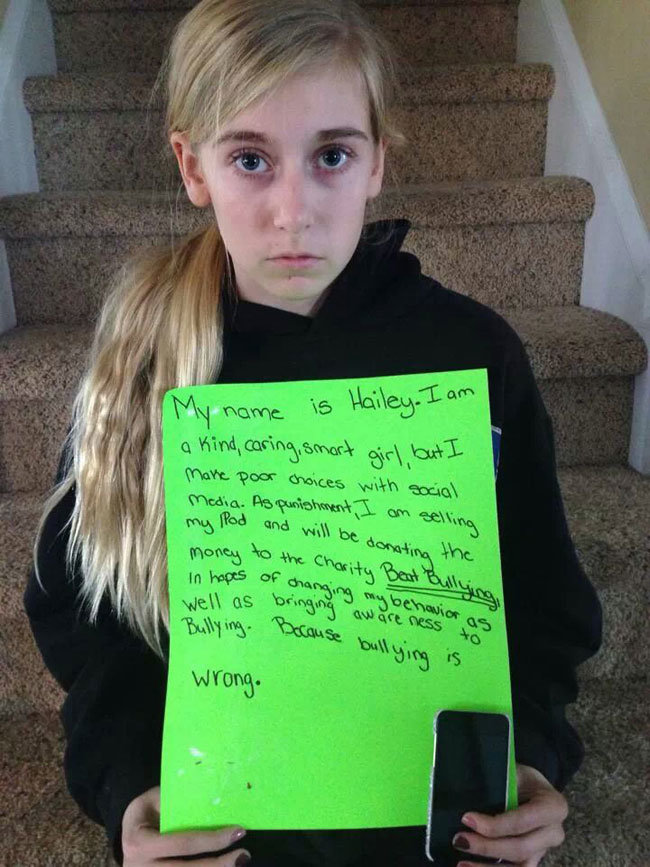 But it might be clearer to say, ‘Come straight home after the movie ends and don’t go anywhere else’.
But it might be clearer to say, ‘Come straight home after the movie ends and don’t go anywhere else’. - Discuss responsibilities with your child. For example, ‘I’m responsible for providing for you. You have responsibilities too, like tidying your room’.
- Agree in advance with your child on what the consequences will be if they don’t stick to the rules you’ve agreed on.
- Use descriptive praise when your child follows through on agreed limits. For example, ‘Thanks for coming straight home from the movie’.
- Be willing to discuss and adjust rules as your child shows responsibility or gets older – for example, by extending your child’s curfew.
To check whether your family rules are realistic and reasonable, you could talk with other parents who have children of the same age. Many schools can also help with guidance.
Using consequences as part of teenage discipline
Sometimes your child might behave in ways that test your limits or break the rules you’ve agreed on. One way to deal with this is by using consequences.
One way to deal with this is by using consequences.
Here’s how.
Make the consequence fit
If you can make the consequence fit the misbehaviour, it gets your child to think about the issue. It can also feel fairer to your child. For example, if your child is home later than the agreed time, a fitting consequence might be having to come home early next time.
Withdraw cooperation
This strategy aims to help your child understand your perspective and learn that they need to give and take. It also helps your child understand that every action has a consequence. By doing the right thing, your child can get a positive consequence. But doing the wrong thing means they get a negative consequence.
For example, if your child wants you to wash a special item of clothing, you could say you’ll do this if they put all their dirty clothes in the laundry basket. Try to avoid making this into a bribe.
Let your child know beforehand that you might withdraw your cooperation as a consequence for misbehaviour. For example, ‘If you want me to iron your shirt for tonight, you need to speak respectfully to me’. Saying that you’re prepared to follow through with a consequence is sometimes enough to influence behaviour.
For example, ‘If you want me to iron your shirt for tonight, you need to speak respectfully to me’. Saying that you’re prepared to follow through with a consequence is sometimes enough to influence behaviour.
Withdraw privileges
This consequence should be used sparingly. If you use it too much, it won’t work as well.
The idea is to remove something that you know your child enjoys – for example, visits to a friend’s house, access to technology, or access to activities. You need to let your child know in advance that this is what you plan to do, so that they can weigh up whether losing the privilege is worth it.
You don’t need to withdraw privileges for a long time for this consequence to be effective. Aim for a short withdrawal that occurs within the few days following the misbehaviour.
Reinforcing consequences
Whatever consequence you choose, these strategies might help to reinforce it.
Communication
It’s important to explain calmly and clearly what the problem is to your child. Tell your child how they haven’t stuck to the rules you agreed on, and let them know that you’ll be applying the agreed consequence.
Tell your child how they haven’t stuck to the rules you agreed on, and let them know that you’ll be applying the agreed consequence.
Self-reflection
The idea is to encourage your child to think about their behaviour and how it could be different in the future.
You can talk with your child about the agreement you had, and what they think should happen as a consequence of breaking it. Often teenagers will be much harsher than their parents. This allows you to settle on future consequences that you both see as fair.
It’s best to balance rules and consequences with warmth and positivity. Try to praise your child or give positive attention more often than you correct or criticise.
Why teenagers test the limits
Teenagers have the job of developing into independent adults. One way they do this is by testing boundaries and seeing how other people react to their behaviour. This teaches them what the social expectations are. As they get feedback, they learn what’s expected.
On top of this the teenage brain goes through massive growth and development during adolescence. As a result teenagers try new things but don’t always make good decisions. They’re more influenced by peers. And they feel things more intensely than you do.
At the same time, teenagers are getting better at seeing the big picture and reasoning. This means they question their world more and use creative ways to solve problems.
For all these reasons, teenage behaviour might sometimes seem hard to manage. But you can work on behaviour with your child and guide them away from tricky situations.
what to do if a teenager constantly lies
children's center and
youth
Development
Phones
+7(495)135-15-45+7(901)388-61-35
Author: Anastasia Kazlovskaya
Contents:
- Reasons for lying in teenagers
- What should parents do if a teenager lies out of fear
- A teenager lies "for no reason"
- The reason for the lies of teenagers that are not visible .
 ..
.. - What does a teenager think about when he cheats?
- Tips on how to get rid of lies
- Help at the K.O.T. what to do if you are confused
An honest article by a teenager about the reasons why a child lies and advice on how to behave to parents so that family relationships are honest.
I'm sure everyone feels bad when they are lied to. Even if a stranger lied during a minute conversation. It is all the more insulting to hear a lie from a loved one, and from your own child - the most insulting of all. Therefore, I really understand parents who are lied to - it hurts and hurts. And, of course, you don't want to experience this again. So why do people, especially teenagers, lie? nine0003
Reasons for lying in teenagers
To decide to lie, there must be a reason. Just like that, no one will lie.
Here are the possible options:
- Desire to avoid punishment.

- Unwillingness to discuss for a long time, to explain the reasons for their actions. Then, usually with the words “couldn’t say,” “didn’t have time,” “forgot,” they eventually tell the truth. I can call it "temporary lie".
- The fear that mom and dad will be upset, as it is also called “white lie”, although this deception, in my opinion, cannot be justified either. nine0019
- Coincidentally: I didn't think it was important, I didn't know, one could say an "unconscious" lie. And this is true.
What should parents do if a teenager lies out of fear
Sadly, most often the reason for lying is the fear of punishment.
Few teenagers willingly admit their guilt and are not afraid to take full responsibility for their misconduct. And if there is an opportunity to escape punishment, then why not use it? nine0003
Parents, if your child has deceived you - very important:
- Do not shout! The most important thing is not to immediately shout, promise to punish and so on! He will only get worse!
- Show that being honest is better .
 It is necessary to make it clear that it is “more profitable” and safer not to lie than to lie! Ask yourself - do you punish your children too much? Is punishment always deserved? If the reason for lying is fear of punishment, then the child will gradually stop lying when he realizes that there is no danger. I talked a lot about punishments in an article on punishing teenagers. nine0019
It is necessary to make it clear that it is “more profitable” and safer not to lie than to lie! Ask yourself - do you punish your children too much? Is punishment always deserved? If the reason for lying is fear of punishment, then the child will gradually stop lying when he realizes that there is no danger. I talked a lot about punishments in an article on punishing teenagers. nine0019
In order for a teenager to stop lying out of fear, you can do this:
- Make sure of the deceit - if "guilt" has not yet been proven, then it must first be proved. You can ask directly: “It seems to me that you are telling a lie, is it so?”. Or learn by "indirect" signs in a conversation. It's more complicated, and for me it's not very fair.
- Promise not to punish - if the lie is clear and exposed, then first promise not to punish him. Just ask to talk. nine0019
- Find out the reason for - discuss the situation inside and out, find out the reasons for his behavior.
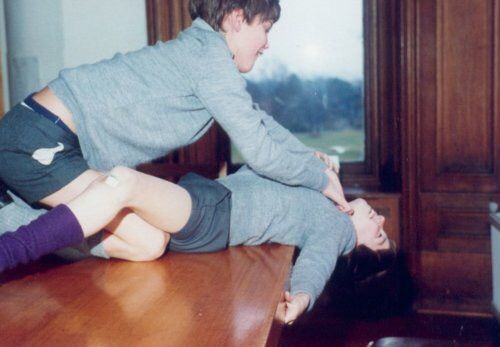 There will soon be a problem. It is unlikely that a teenager will be so easy to confess and speak frankly.
There will soon be a problem. It is unlikely that a teenager will be so easy to confess and speak frankly. - Show the consequences of - explain what happened because of his lies. Tell us your opinion - how it really happened, and ask to correct the story so that it is true.
- Tell about your feelings - that you are offended, that he lied, that you were afraid. Just be honest. Your emotions are important, we don't want to upset you. nine0034 Tell him that it's important to you that he speaks the truth.
- Discuss the situation - here I'm not talking about the reasons for lying, you already forgave the child :). The question is why did you have to cheat. If, for example, we are talking about a hidden deuce, check whether the child understands everything in the last lessons. If necessary, help to understand the topic. If everything is clear, you can find out about the relationship with the teacher, or about other reasons for a bad grade.

A teenager cheats “for no reason”
Why does the lie continue?
So maybe if there were disagreements in the family that led to big conflicts - the child hid communication with friends, grades, his hobbies. Problem solved. And the adult seems to “understand and forgive,” while the child is used to hiding. After all, he used to have to defend himself with a lie, but now the need has disappeared, but consciousness still sees the danger and tries to avoid it.
As a result, the family again faces misunderstanding and lies.
- Here, adults can put up with it and wait until the child's habit of hiding becomes unnecessary even from the point of view of their child's "militant" consciousness.
- Or talk again, more carefully and reasonably, explain that his lies hurt others, and calmly, without aggression, correct the child every time he starts to lie.
The reason for the lies of adolescents, which is not visible .
 ..
.. And if the reason for the deception is protection, but the child does not want to tell, what is he protecting himself from? Or maybe he doesn't know it himself? I talk a lot with my friends, and I know that this happens ...
Such situations are overwhelming. You do not seem to punish, do not shout, try to encourage the truth, but he is lying! But if you think carefully, you can find the answer to this question. Often this is the disapproval of parents.
Sometimes disapproval is worse than punishment. There is nothing worse than realizing that your actions, deeds, preferences are not liked by mom and dad ... Even if they do not talk about it openly.
Why is it difficult to deal with disapproval?
It is difficult for adults to correct a situation with disapproval. It is based on personal preferences and dislikes. A simple, banal example. Not really from life, but I'll try to explain it on it. nine0003
It can be difficult for a mother to contain her disgust at the sight of her child's love for snakes and snails. And he squeezes cats that are disgusting to him instead of cute snails in front of his mother in order to earn approval. And when he goes to his hidden snails, he will have to deceive that he was going to a friend or just walking. But when the truth comes out, it turns out a flurry of criticism and lamentations, they say, you are messing with slimy worms, and even deceiving. And it seems that the “lie” is not that he is playing with a snail, but that he did not say where he went. And you were afraid, you lost it. And the reason for the deception is that the child was afraid of disapproval. nine0003
And he squeezes cats that are disgusting to him instead of cute snails in front of his mother in order to earn approval. And when he goes to his hidden snails, he will have to deceive that he was going to a friend or just walking. But when the truth comes out, it turns out a flurry of criticism and lamentations, they say, you are messing with slimy worms, and even deceiving. And it seems that the “lie” is not that he is playing with a snail, but that he did not say where he went. And you were afraid, you lost it. And the reason for the deception is that the child was afraid of disapproval. nine0003
In such a situation one can understand both the parents and the child. Adults are also unpleasant because of lies, the reason for which is not visible. And the reason is in the snails. That is, in disapproval. And then a habit is formed to hide and hide what parents do not like - hobbies, friends, etc.
What does a teenager think about when he cheats?
In his heart he feels guilty because of upset parents, their disapproval, because he deceived. Afraid of punishment. But how can you not deceive if they still swear, or begin to show how they are annoyed by your hobby, or you just feel that you are terribly dissatisfied? nine0003
Afraid of punishment. But how can you not deceive if they still swear, or begin to show how they are annoyed by your hobby, or you just feel that you are terribly dissatisfied? nine0003
Before the truth is revealed, it will be possible to prepare yourself and prepare an apology speech. I'll lie - I'll buy time.
Moreover, one always thinks: “what if the truth is never found out?”. But everything secret becomes clear ...
Tips on how to get rid of lies
Advice for teenagers:
If the reason for lying lies in fear of disapproval of parents, or fear of punishment, I think that we need to get together, seize a good moment and say everything as is, without resorting to deception. This way they will see that you trust them. And you will “get it” because of the hidden object itself, and not because of a lie. Or maybe not at all. And you will be understood. nine0003
Advice for parents:
- Communicate warmly with your teenager, talk about feelings.
 You can play games together, walk, read, and at the same time talk. Share your thoughts, explain everything.
You can play games together, walk, read, and at the same time talk. Share your thoughts, explain everything. - Respect interests - he may like what you don't like
- You can openly express your dislike for something, but do not condemn the interests of a teenager.
- Try not to overdo it, or do not have such conversations immediately after quarrels, especially if the child is offended. After all, then he can deliberately, to spite you, do what you are trying to “scare him away” from. nine0019
- It is advisable not to frighten the undesirable with stories or pictures, to select the right moment and measure.
The most important thing in a relationship without lies.
The most important thing in a relationship built without lies is trust. Spend more time with each other, talk more often, laugh, joke. Find common interests, but have the courage to disagree. Arrange pleasant or funny surprises, do something pleasant not only for the holidays, but also just from the heart. Trust each other, help without asking for help. Say an "extra" compliment, do an "extra" good deed. Support in undertakings, even in the most daring and reckless, and warn of dangers. Swap secrets, have a good laugh. nine0003
Trust each other, help without asking for help. Say an "extra" compliment, do an "extra" good deed. Support in undertakings, even in the most daring and reckless, and warn of dangers. Swap secrets, have a good laugh. nine0003
Help at the K.O.T. – what to do if you are confused
The article turned out to be very frank, honest and deep. I can’t even believe that its author is only 13 years old. And if teenagers are capable of such thoughts, we are sure that it is definitely possible to negotiate with them! If you can not cope in the family, on our own, we are always happy to help you. Ask a question to our psychologists or sign up for a consultation. We are sure that all your questions will be solved.
subscribe
for news
order training
for a group
contact us
I'm not talking to you! Why can't a child be punished with silence?
Silence as a form of punishing a child for disobedience or misconduct is a fairly common way of education.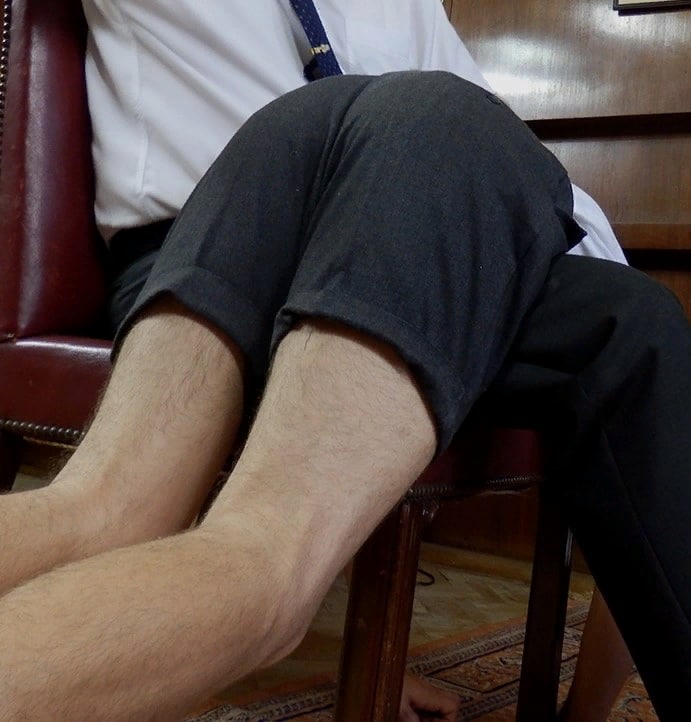 Psychologist Anna Skavitina explained why this is actually manipulation and violence.
Psychologist Anna Skavitina explained why this is actually manipulation and violence.
Anna Skavitina, psychologist, analyst, member of the IAAP (International Association of Analytical Psychology), supervisor of the ROAP and the Jung Institute (Zurich), expert of the Psychology journal
I don't exist?
“Tick-tock, tick-tock” is the only sound that I heard during the two weeks of my childhood, says Masha, and also my own voice. "Mom, mom, I'm sorry." The answer is silence. The cold face of the mother, gliding past me, as if past an empty place, a look. I don’t exist, I thought, and I didn’t understand at all how to return from this Looking Glass to a world where everyone sees each other. Two weeks, three days, ten days - it was unpredictable every time. I silently went to school, silently came, warmed up the food. I didn’t want to go home at all, but where else can you go if you are a small child. I didn’t know whether to love my mother or hate, but most importantly, I didn’t understand if my mother could be somehow fixed. This made me want to do everything, everything, everything so that she began to see me. Then she suddenly thawed, and I could not understand what magic led her to thaw. nine0003
This made me want to do everything, everything, everything so that she began to see me. Then she suddenly thawed, and I could not understand what magic led her to thaw. nine0003
When I grew up, I also used this method of influencing my husband when something did not go according to my plan. I was lucky that my husband very quickly realized that it was impossible to live like this any longer, and took me to a family psychologist. Because I did not hear my husband, or rather pretended not to listen. Our family psychologist quickly figured out that punishing with silence was a way I understood to solve problems. And he also said that this is a way of emotional abuse of a person. Violence that I regularly experienced as a child and used with my husband."
Silence is unbearable
Silence punishment is a passive-aggressive form of emotional abuse in which feelings of dissatisfaction, disapproval and contempt are not expressed directly. It is a form of punishment with the intention of hurting a person, hurting one's own child. However, it does not contain information about why this is happening, how long it will last, or what needs to be done to stop the silence and become visible. A child "who is silent" becomes wounded, anxious and insecure. He thinks that mom and dad stopped loving him, no one needs him. It is difficult to endure even for adults, but for children, whose lives are directly dependent on their parents, this is completely unbearable. nine0003
However, it does not contain information about why this is happening, how long it will last, or what needs to be done to stop the silence and become visible. A child "who is silent" becomes wounded, anxious and insecure. He thinks that mom and dad stopped loving him, no one needs him. It is difficult to endure even for adults, but for children, whose lives are directly dependent on their parents, this is completely unbearable. nine0003
Unfortunately, silence as a form of punishment is a fairly common way of education. Many people say that they went through such a difficult experience in their childhood, and believe that this is one of the most terrible experiences that they had a chance to go through.
Parents also use silence punishment because they consider it a rather harmless way to bring a naughty child to his senses. And even one of the best ways to punish their children, because this is a peaceful way, parents here do not allow verbal or physical violence. In silence, parents want to convey to the child that they, the parents, are very upset, and that the child has harmed them. They think it's better to remain silent than to lash out with shouting or swearing. It seems that if these are not physical blows and insults, then this cannot affect the psyche of children enough to cause any damage. But they are wrong. Ignoring and silence is a way to hurt without visible bruising. Research has shown that the act of ignoring a person activates the same area of the brain that is activated by physical pain. There is no choice between physical abuse, insults and emotional abuse. Violence is violence. nine0003
In silence, parents want to convey to the child that they, the parents, are very upset, and that the child has harmed them. They think it's better to remain silent than to lash out with shouting or swearing. It seems that if these are not physical blows and insults, then this cannot affect the psyche of children enough to cause any damage. But they are wrong. Ignoring and silence is a way to hurt without visible bruising. Research has shown that the act of ignoring a person activates the same area of the brain that is activated by physical pain. There is no choice between physical abuse, insults and emotional abuse. Violence is violence. nine0003
Be good!
Parents can also use this method because they are sincerely afraid of conflict and prefer to avoid it at all costs: unpleasant feelings and discussions make them feel uncomfortable. Therefore, they begin to be silent, and then it is already difficult for them to get out of this peak state. By burying his head in the sand, the parent does not solve any problems, at best he puts them off, but more often only aggravates them.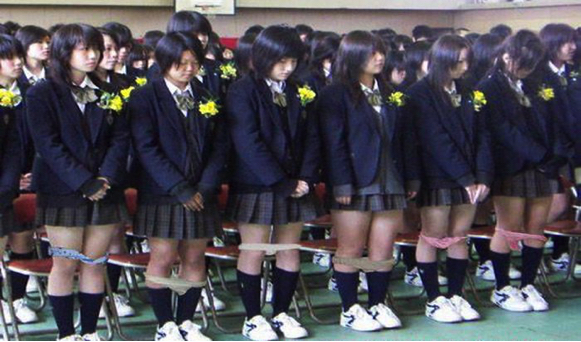 Silence punishment is a manipulation, a "crooked" way to gain power over a person, making the victim feel powerless, intimidated, guilty and begin to ignore himself, his needs, learn to always be a good child for everyone with whom he will deal. nine0003
Silence punishment is a manipulation, a "crooked" way to gain power over a person, making the victim feel powerless, intimidated, guilty and begin to ignore himself, his needs, learn to always be a good child for everyone with whom he will deal. nine0003
Silence is a desperate attempt and a parent's need to control their rage. The younger the child, the more likely it is that withdrawal, silence, and neglect are associated with a sense of parental helplessness, a lack of competence, and not a feeling that the parent has been "personally injured", as can be the case with adolescents and adult children.
Children are not born with the desire to harm their parents. They behave as they can, as they have learned to this point. If a child has done something wrong, then a boycott will in no way help him correct his act or learn something important. Most likely, even after ignoring and silence, the child will be so excited, upset that he will not be able to normally perceive what you are saying to him.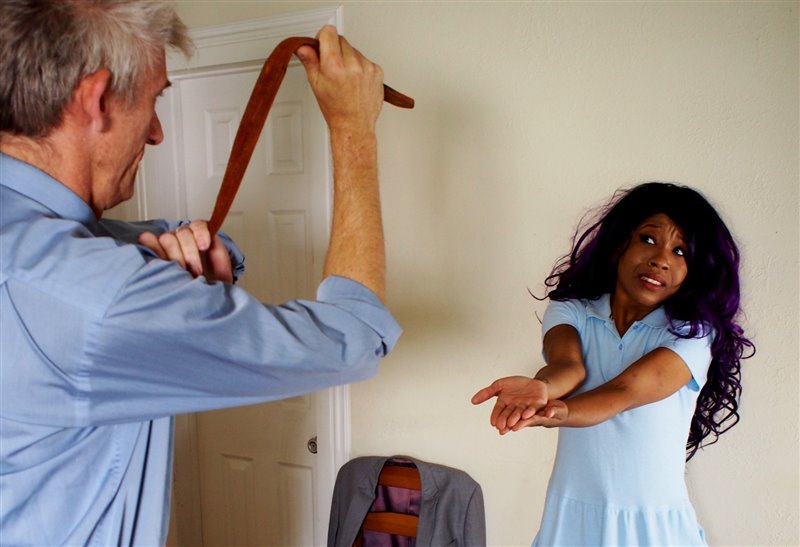 nine0003
nine0003
How will the child respond?
Children react differently to silence. Some, stronger, begin to fight for the attention of their mother: they do good deeds or, on the contrary, do something even more ridiculous so that the parent at least screams. After all, negative attention is also attention. Children write notes, slip them under the door, cry, laugh - they need to melt the ice in their parent's heart. There are children who also fall silent, shrink, hide their eyes, as if dissolving in space, trying not to catch the eye - these children no longer hope for anything, realizing their helplessness in this situation and in life. This is already a traumatized version of development. nine0003
It happens that the trigger for parents to thaw is repentance and apologies. Many children do not even understand what they have done, and therefore they perceive the whole situation only as a total injustice that they must come to terms with. I think that this is not at all what parents would like.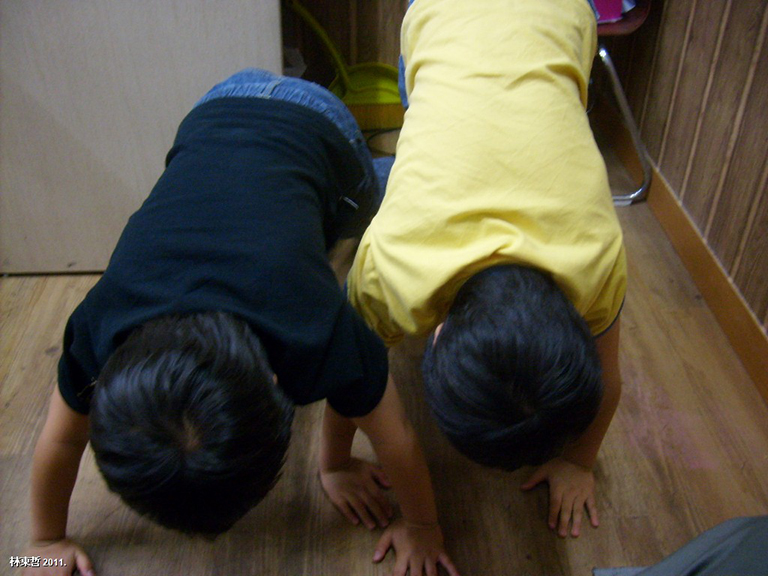
In order for the child to understand what is wrong in his behavior, what and how to correct, you need to talk to him. Even if you are emotional. Even if you broke loose and screamed, even if you barked like an angry dog - it's not so scary, you are a living person. Of course, it's great if you have enough to not yell or hit in an emotionally tense situation, but say (shout): "I'll go out for a minute!" To cool down, drink some water, look out the window, try to turn on the intellect instead of emotions, and return to continue the discussion. nine0003
Do you understand that it is difficult for you to cope with your feelings, you lack the skills to deal constructively with disputes and conflicts in the family, or did you have your own experience of violence in childhood? You may need the help and support of your partner, friends, and mental health professionals to stop the cycle of abuse so that your children can already stand up for and express themselves, endure their feelings and the feelings of their children, and live with pleasure.
